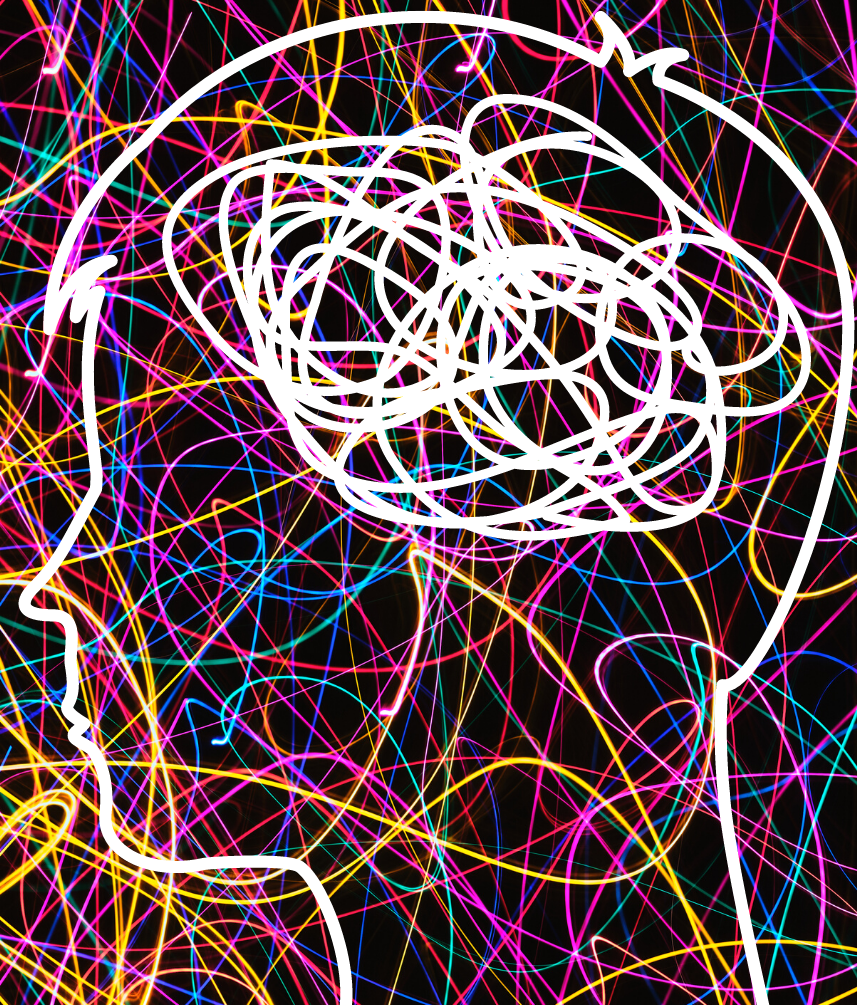
There are many factors that impact mental wellbeing and being in a minority group can put people at a higher risk of mental illness, and neurodivergent people are no exception. This phenomenon is known as minority stress and can be compounded by multiple intersecting identity characteristics. The stigma around neurodivergent conditions can lead to decreased self-worth, social isolation and higher rates of mental ill health.
In addition to minority stress, the sensory differences that many neurodivergent people experience are a huge source of anxiety as well as challenges around change. Mental health conditions like anxiety and depression are thus found very frequently as comorbidities with neurodivergent conditions. Many studies have found that the rate of anxiety and depression is much higher in neurodivergent populations than in the general population.
From personal experience, living in a world where everything tends to be too loud and confusing, and nothing is designed to suit the way you’re wired is really challenging. I’ve been diagnosed with generalised anxiety disorder and major depressive disorder alongside autism which is not a surprise at all to me. Many of my neurodivergent friends have the same (or similar) cocktail of mental health challenges to deal with on top of their neurodivergent experience.
Sometimes I find that my anxiety or depression is more disabling than being autistic but they all feed into each other in some ways. But while I think that being autistic has loads of positives, for me my mental illnesses are only negative. I would still be me if I didn’t have anxiety or depression, but I’d be so fundamentally changed if I wasn’t autistic that I would cease to be ‘Daisy’. I’m not saying that being autistic fully defines me, but it’s as much a part of my identity as say having blue eyes or being 5’3”. This is how neurodivergence and mental illness differ for me, but others may have a different outlook!
One thing that has been identified in recent years is the need for mental health services to adapt for neurodivergent people. Whether it’s ensuring that the sensory environment is appropriate, communicating clearly, or adapting the therapy itself, there’s plenty of evidence that some of us who are neurodivergent don’t respond to therapies such as Cognitive Behavioral Therapy in the same way. A different approach is needed that affirms our experiences and suits the way our brains are wired.
So how can you help? As always, support is crucial when it comes to mental wellbeing. For neurodivergent people, ensuring that their day-to-day anxiety is reduced can make a huge difference. As I mentioned, mental health conditions usually intertwine with neurodivergence and they can compound the challenges that arise from each other. Making sure that reasonable adjustments are in place promptly always helps a lot. It’s also worth just checking in with people occasionally! People can be very adept at masking their difficulties, but a kind word or a quick check-in can go a long way. You should also try to know where to signpost people who tell you that they’re struggling with their mental health. Here at Surrey we have the Centre for Wellbeing and for neurodivergent students the Disability and Neurodiversity team can help support with this too, even if it’s just facilitating contact with the CWB or other mental health services.
Some Useful Mental Health Services:
References and Resources:
Anxiety Disorders in Adults with Autism Spectrum Disorder: A Population-Based Study
